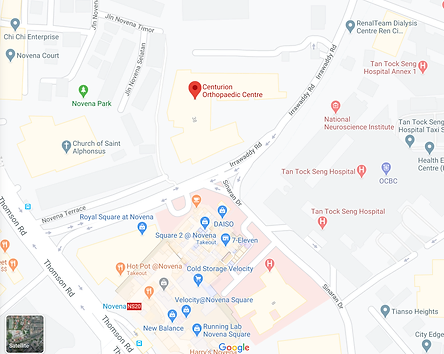Stiffness and Pain

Shoulder Stiffness and Pain
Stiffness and Pain of the shoulder is a very common issue. It typically affects people in their 40s to 60s.
The person will feel difficulty reaching upwards to a cabinet, wearing the clothes, hooking the garment. There is pain if the person tries to force to stretch the shoulder. It may also become difficult to carry weights such as groceries.
Stiffness first, or Pain first?
Whether stiffness sets in first or pain sets in first, may give some clues about the underlying condition.
Cases where stiffness starts setting in, then followed by pain soon after, are commonly frozen shoulder cases. It can become very painful in frozen shoulder, such that the person may not be able to sleep.
Where pain starts first, then followed by stiffness, the causes are more variable. These may include impingement, rotator cuff tear, calcific tendinitis, amongst others.
Frozen shoulder, or not?
Frozen shoulder refers to an inflammatory condition where the tissues around the shoulder get inflamed and tight, causing marked stiffness. Without treatment, a case of pure frozen shoulder may take 1 to 2 years to recover.
However, many cases of pain and stiffness may not be just pure frozen shoulder. In many cases, the underlying condition was something else, eg impingement or rotator cuff tear, which developed the complication of stiffness when left untreated.
It is important to differentiate such cases as they likely will not recover by themselves.
A physical examination by a Shoulder specialist is an important part of the diagnosis to differentiate between the causes. Xrays and MRI are also commonly ordered to evaluate the internal condition. Only after an accurate diagnosis has been made, can appropriate treatment be started.
Frequently Asked Questions
Find quick answers to common queries, designed to help you navigate
your orthopaedic care journey with ease.
Surgery is a big thing. I am afraid...
To the patient, having to undergo a procedure is always frightening. Our team is here to help you through the process, we are with you at every step of the way.
Also, modern surgical methods are proven to be very safe with very low complication rates.
What advanced treatments do you have for my knee?
Advanced treatments include:
- Tissue-healing stimulant injections
- Arthroscopic (Key-Hole) procedures to repair cartilage and meniscus
- Shoulder Joint Replacements for advanced arthritis
Will my insurance cover the treatment?
There are many different medical plans with different coverage limits.
We are affiliated with many insurers and will help patients obtain approval for their treatment.
Do I need a referral letter from my family doctor?
You can come see us without having to obtain any referral letters first.
The exception is if you are using a corporate insurance plan, as some corporate insurers require you to see a family doctor on your panel first, and ask for a referral letter to us.
I injured my shoulder one month ago and it is still painful now. Should I get it checked?
Persistent pain usually means a significant problem. Simple strains and sprains rarely last more than 2 to 3 weeks.
The shoulder is a complex joint with many structures within it which can get injured.
If you have pain, and furthermore associated with a catching feeling, weakness, or sharp pains in certain angles, you should get it checked.
I have mild pain in the shoulder. Is it ok to continue with exercise or weights?
While level of pain is one indicator, it is not an accurate indicator.
For example, if the pain is due to a tissue tear, even though it is mild, you will need to reduce the activities.
The most important is first an accurate diagnosis.
What are the treatment methods for shoulder pain?
There are various treatment methods for joint pain, each with their own pros and cons. These will be discussed in detail by our specialist during consultation.
Generally, the methods include:
- medications
- supplements
- physiotherapy
- ergonomic and activity correction
- injections
- artificial gel
- Key-Hole procedure
- surgery

Centurion Orthopaedic Centre
38 Irrawaddy Road
Mt Elizabeth Novena Hospital Specialist Centre #07-40
Singapore 329563

Services
Medisave / Insurances
Treatments
Ankle Sprain & Treatment
Cartilage Repair Treatment
Bone Fracture Treatment
Alternatives to Knee Replacement
Knee Replacement Surgery
ACL Reconstruction Surgery
Knee Cartilage/Meniscus Tear Injury
Heel Spur Treatment
Hip Replacement Surgery
Hip Scope Surgery
Shoulder Scope Surgery
Ankle Ligament Surgery
Spinal Injection Therapy
Steroid Injection
Patient Resources
© 2026 Centurion Orthopaedic Centre. All rights reserved.